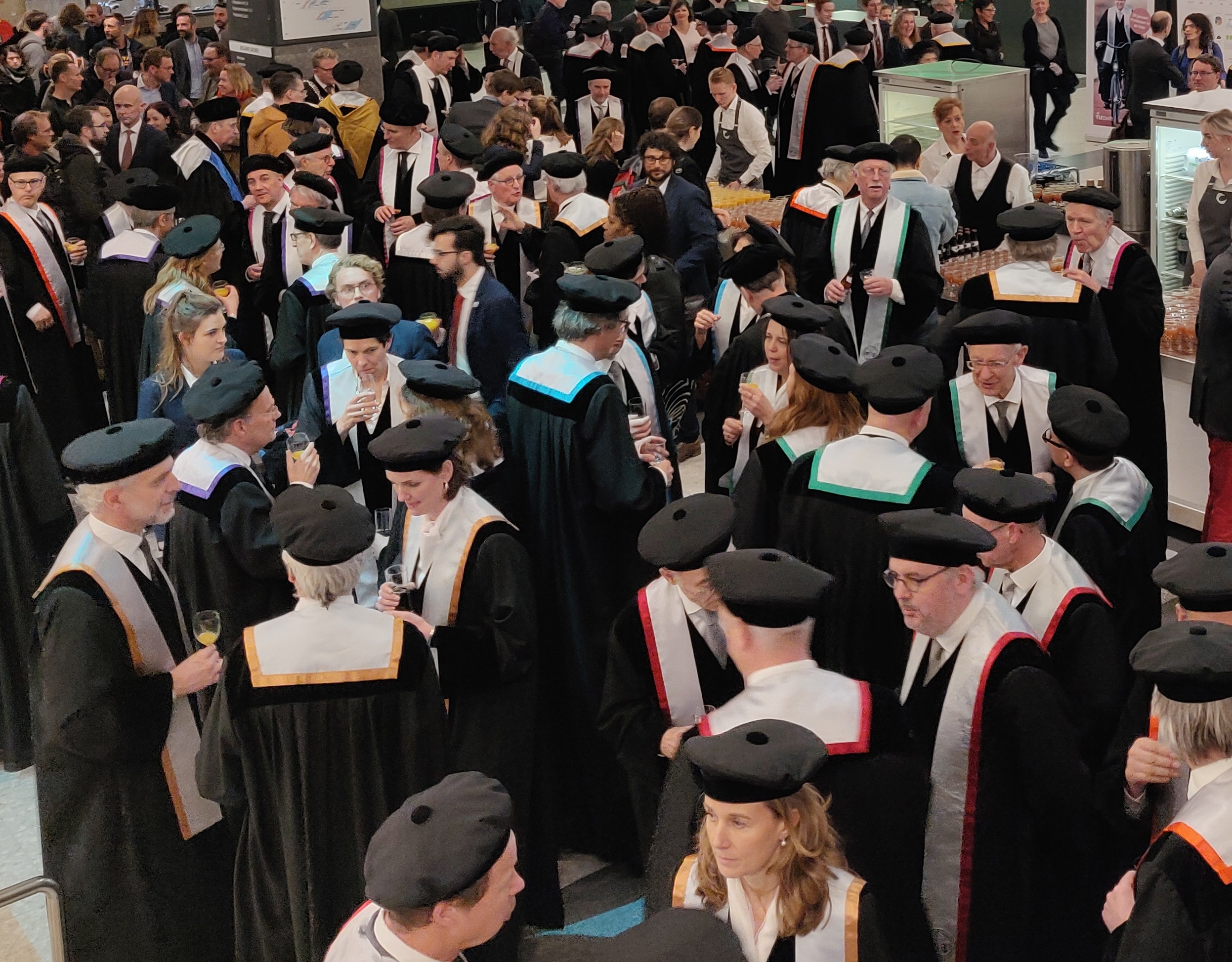The crisis has thrown the allocation of research funding by the Dutch Research Council into chaos. Action group Athena’s Angels fears female scientists are at a disadvantage.
Dies of TU Delft 2020. (Photo: Marjolein van der Veldt)
Every year, the Dutch Research Council allocates hundreds of millions in research funding to the scientists who submit applications. Expert committees are convened to select the best proposals. But now those application rounds have been abruptly interrupted by the outbreak of the coronavirus and its consequences.
It may seem that everyone is affected equally, but that is not the case according to the four professors of Athena’s Angels. Women participating in the Council’s Talent Programme seem to be experiencing particular problems.
Athena’s Angels is made up of professors Eveline Crone, Naomi Ellemers, Judi Mesman and Ineke Sluiter. They have been drawing attention to sexism in science for many years – from casual remarks to more structural disadvantages.
The risk that stereotyping will play a role
The Council’s system of funding rounds mean that scientists need to write a research proposal. Potential candidates are then invited to an interview. Some of those interviews were held in March, and the rest will follow in September. But Athena’s Angels have written to the Dutch Research Council to say that the intervening period is too long. The committee members will need a truly outstanding memory if they want to compare the candidates, and there is the risk that stereotyping will play a role – and this disadvantages women.
Moving the interviews to September will also disadvantage women who are in the advanced stage of pregnancy in that month, for instance. Usually, the Dutch Research Council is more flexible about the dates for these interviews, but because these have already been delayed for so long, the Council now wants to make sure they are completed in September.
Lockdown
So what about the lockdown? This seems to be disadvantaging female scientists who have young children. This can affect their performance, warn the professors. ‘We know from research that assessors find it difficult to make allowances for these types of patterns, even when they are specifically instructed to do so.’
So what should be done? The four authors of the letter suggest that it may be possible that there is no need to hold interviews at all. Or that, for the middle group of reasonably good applications, the Dutch Research Council could draw lots instead of applying its selection process procedure. If necessary, the Council could ringfence some of its budget for late funding awards.
Council board member Margot Weijnen has responded to Athena’s Angels with a polite letter in which she rejects their suggestions: the procedures that have been specified in advance must now be observed, she says. Drawing lots is not an option, and neither is awarding grants without an interview. To do this, the Council would need to have announced it in advance.
But online interviews may be coming, and the Council can also offer all kinds of other options, assures Weijnen. Not all these options can be integrated into the existing procedures. Candidates should contact the Council to explore these options.
Extension of submission deadlines
Weijnen also points out the flexibility provisions that can be invoked for researchers who are unable to take part in a standard selection procedure due to pregnancy or personal circumstances beyond their control. They can be permitted to submit their application after the official deadline, or they can apply for childcare leave.
The Angels have not been the only ones to sound the alarm. The Maastricht network of female scientists FEM have also pointed out these issues. In practice, women are more likely to have care responsibilities and are already short on time due to home schooling and the lack of childcare, they have warned.
HOP, Bas Belleman
Translation: Taalcentrum-VU
Do you have a question or comment about this article?
redactie@hogeronderwijspersbureau.nl


Comments are closed.